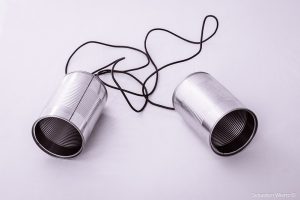 As it happens, I am writing this on US election day. Since readers are still encouraging me to continue writing along my current political line, I have watched a bit more news than usual over the past few weeks. In particular, I paid some attention to Joe Biden as he spoke out about some of his views on policy.
As it happens, I am writing this on US election day. Since readers are still encouraging me to continue writing along my current political line, I have watched a bit more news than usual over the past few weeks. In particular, I paid some attention to Joe Biden as he spoke out about some of his views on policy.
Mostly though, I was looking for some stories of identity from the Democratic candidate, and I still have found none.
Of course, political commentary is not at all my field of expertise, and I was reminded of that again recently.
On one of the podcasts I sometimes listen to, host Joe Rogan was interviewing his guest, a well-known stand-up comedian. As is often the case these days, the two men began giving their views about something far outside their domains of knowledge—how long and how severe the corona pandemic would become.
After a minute or two, Rogan interrupted the discussion, and he proclaimed: For those of you who are just tuning in, this show is called, “Two morons talking about medicine”. The remark made me laugh, but it also made me think about my own lack of qualification to say anything about politics. So, in case you are new to this blog, you are now tuned in to the program, “John, who knows nothing about it, opining on political campaigns”.
Nonetheless, I propose we return to the theme of a previous entry, about what it means to “know” any person in the public eye. Each time I hear a statement such as, “Everybody knows Joe Biden”, it makes me wonder. In the case of Mr Biden, or most candidates for that matter, I would contend that voters know them only in superficial ways. As mentioned previously, I liken this form of “knowing” to having seen someone’s resume. We know what jobs the candidate has held, and perhaps we have a broad understanding of how they think on some of the issues.
But, do we really have a deep appreciation for who they are, where their core values come from, or how they might make decisions under uncertainty? Do we know anything about the experiences that have shaped their beliefs? Can we have confidence in the way they will manage their teams, or lead in times of crisis?
My contention is that the best way for anyone running for office to connect with listeners, and to give them some insight on any of the questions above, is by telling stories from their lives.
Why is story the most effective device to express such things, and to help voters know a public figure in more meaningful ways? On a basic level, a candidate’s life stories connect with us effectively because it is through story that we learn to know anyone, in any context.
What happens when we meet someone who we are interested in getting to know? We engage in sessions of story listening. We ask each other questions: Where did you grow up? Where did you go to school? What was your childhood like? As such, we listen to the other’s personal stories. Such questions can provide quick insight about who we are, and what we hold as important.
As we come to know someone better, we exchange stories of a deeper nature, tales that speak to our life lessons and how we acquired them. We talk about the best times of our lives, about knowledge gleaned from parents, teachers, coaches, bosses, colleagues and friends. What were the life experiences that changed us, the events and decisions that caused us to become the individual we are now? What are the central elements of our beliefs, and how did we come to discover them?
In summary, When we want people to understand us, we share parts of our story with them. And when we want to know who another person is, we ask them to share their stories with us.
Of course, political figures are not able to have these conversations of discovery with us as individuals. Nonetheless, the best politicians strive to teach us some of these things about themselves, by telling us their identity stories.
In coming entries, I will explain a bit about why Barack Obama did this well, and why Hillary Clinton did not. And, we’ll do some observation of Joe Biden and Donald Trump as well.
Image: Flickr user Sebastian Wiertz
